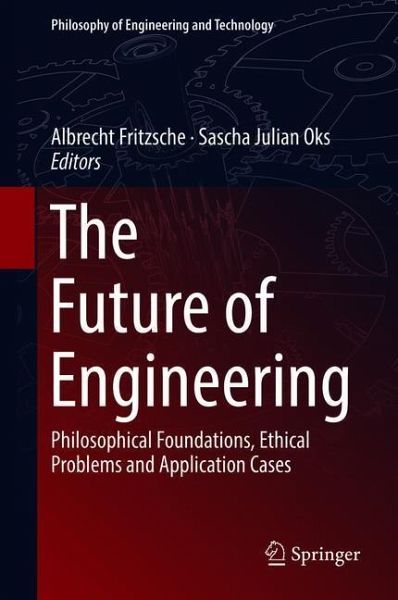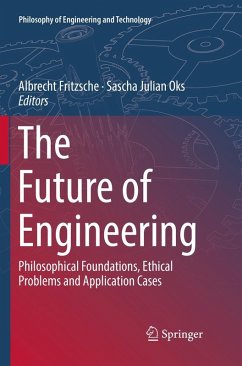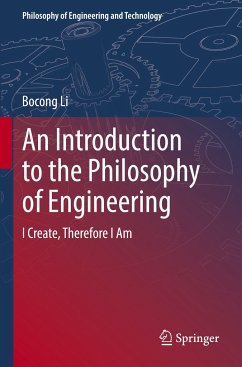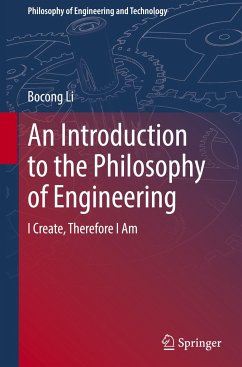
The Future of Engineering
Philosophical Foundations, Ethical Problems and Application Cases
Herausgegeben: Fritzsche, Albrecht; Oks, Sascha Julian

PAYBACK Punkte
49 °P sammeln!
In a world permeated by digital technology, engineering is involved in every aspect of human life. Engineers address a wider range of design problems than ever before, raising new questions and challenges regarding their work, as boundaries between engineering, management, politics, education and art disappear in the face of comprehensive socio-technical systems. It is therefore necessary to review our understanding of engineering practice, expertise and responsibility.This book advances the idea that the future of engineering will not be driven by a static view of a closed discipline, but rat...
In a world permeated by digital technology, engineering is involved in every aspect of human life. Engineers address a wider range of design problems than ever before, raising new questions and challenges regarding their work, as boundaries between engineering, management, politics, education and art disappear in the face of comprehensive socio-technical systems. It is therefore necessary to review our understanding of engineering practice, expertise and responsibility.
This book advances the idea that the future of engineering will not be driven by a static view of a closed discipline, but rather will result from a continuous dialogue between different stakeholders involved in the design and application of technical artefacts. Based on papers presented at the 2016 conference of the forum for Philosophy, Engineering and Technology (fPET) in Nuremberg, Germany, the book features contributions by philosophers, engineers and managers from academia and industry, who discuss current and upcoming issues in engineering from a wide variety of different perspectives. They cover topics such as problem solving strategies and value-sensitive design, experimentation and simulation, engineering knowledge and education, interdisciplinary collaboration, sustainability, risk and privacy.
The different contributions in combination draw a comprehensive picture of efforts worldwide to come to terms with engineering, its foundations in philosophy, the ethical problems it causes, and its effect on the ongoing development of society.
This book advances the idea that the future of engineering will not be driven by a static view of a closed discipline, but rather will result from a continuous dialogue between different stakeholders involved in the design and application of technical artefacts. Based on papers presented at the 2016 conference of the forum for Philosophy, Engineering and Technology (fPET) in Nuremberg, Germany, the book features contributions by philosophers, engineers and managers from academia and industry, who discuss current and upcoming issues in engineering from a wide variety of different perspectives. They cover topics such as problem solving strategies and value-sensitive design, experimentation and simulation, engineering knowledge and education, interdisciplinary collaboration, sustainability, risk and privacy.
The different contributions in combination draw a comprehensive picture of efforts worldwide to come to terms with engineering, its foundations in philosophy, the ethical problems it causes, and its effect on the ongoing development of society.












